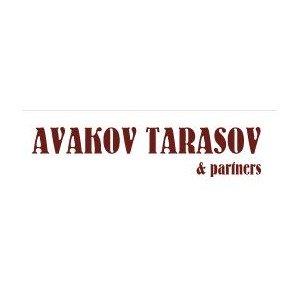Best Labor Law Lawyers in Russia
Share your needs with us, get contacted by law firms.
Free. Takes 2 min.
Or refine your search by selecting a city:
List of the best lawyers in Russia
About Labor Law in Russia
Labor Law in Russia provides the legal framework governing the relationship between employers and employees. Russian Labor Law is codified in the Labor Code of the Russian Federation, which came into force on February 1, 2002. The Code establishes the rights and obligations of both parties, ensuring the protection of workers’ rights and outlining the responsibilities of employers. It covers various aspects, including employment contracts, working time, rest periods, wage regulations, workplace safety, and termination of employment.
Why You May Need a Lawyer
There are various situations where you may require legal assistance in the field of Labor Law in Russia:
- Unfair Dismissal: If you believe your termination was unjust or did not follow due process.
- Contractual Disputes: Issues arising from employment contracts or agreements.
- Wage and Compensation Issues: Disputes over unpaid wages or unfair compensation.
- Discrimination or Harassment: Experiencing discrimination based on gender, age, race, or sexual orientation in the workplace.
- Workplace Safety Violations: If your workplace does not meet safety standards, leading to health risks.
- Collective Labor Disputes: Issues involving unions or collective bargaining agreements.
Local Laws Overview
Some of the key aspects of Russian Labor Law include:
- Employment Contracts: Must be in writing and specify details such as job duties, salary, and working conditions.
- Working Hours: The standard workweek is 40 hours, with overtime limited and subject to compensation.
- Minimum Wage: Set by federal and regional laws, ensuring a basic standard of living for all employees.
- Leave and Holidays: Employees are entitled to annual paid leave and public holidays.
- Occupational Health and Safety: Employers are required to provide a safe working environment and adhere to safety regulations.
- Termination of Employment: Must follow prescribed legal procedures and often requires severance pay.
Frequently Asked Questions
What is the procedure for dismissing an employee in Russia?
Dismissal must follow specific legal procedures, including providing advance notice, documenting reasons, and in some cases, obtaining consent from a trade union.
Are employees entitled to breaks and rest during work hours?
Yes, employees are entitled to breaks, and they cannot work more than 4 hours without a meal break of at least 30 minutes to 2 hours.
What is the legal minimum wage in Russia?
The legal minimum wage varies by region, with federal regulations establishing a baseline that regional authorities can increase.
Can an employer change my job duties unilaterally?
No, any changes to job duties must be agreed upon mutually unless there are legal grounds that justify the changes.
What should be included in an employment contract?
An employment contract should include job title, duties, salary, work conditions, and contract length (if applicable), among other details.
What protections do employees have against workplace discrimination?
Russian law prohibits discrimination based on gender, race, age, nationality, and other characteristics, and provides mechanisms for addressing grievances.
How is overtime compensated in Russia?
Overtime must be compensated at a higher rate, typically one and a half to two times the regular hourly rate.
What are the rules for maternity leave in Russia?
Expectant mothers are entitled to 70 days of paid leave before birth and 70 days after birth, with additional leave allowed for multiple births or complications.
Are sick leaves paid in Russia?
Yes, employees are entitled to paid sick leave, compensated partially by the employer and partially by social insurance.
How can an employee settle a labor dispute without going to court?
Disputes can often be resolved through negotiations, internal grievance procedures, or mediation before resorting to legal action.
Additional Resources
When seeking more information or assistance, consider these resources:
- Federal Labor and Employment Service (Rostrud): Oversees compliance and provides guidance on labor issues.
- Chamber of Commerce and Industry of the Russian Federation: Offers resources and support for businesses and employees.
- State Labor Inspectorates: Regional bodies providing assistance and monitoring labor law compliance.
- Non-Governmental Organizations (NGOs): Various NGOs focus on labor rights and can offer support and advice.
Next Steps
If you require legal assistance in labor matters, follow these steps:
- Identify the specific issue or dispute you are experiencing.
- Gather all relevant documents, including employment contracts, emails, pay slips, etc.
- Consult with a legal advisor or attorney specializing in labor law.
- Consider contacting local labor inspectorates for guidance or to file a complaint.
- Explore alternative dispute resolution methods like mediation to resolve the issue amicably.
- If necessary, prepare to take the matter to court, ensuring you have all needed documentation and legal representation.
Understanding and navigating labor law can be complex, but with the right approach and resources, you can effectively address your issues and uphold your rights.
Lawzana helps you find the best lawyers and law firms in Russia through a curated and pre-screened list of qualified legal professionals. Our platform offers rankings and detailed profiles of attorneys and law firms, allowing you to compare based on practice areas, including Labor Law, experience, and client feedback.
Each profile includes a description of the firm's areas of practice, client reviews, team members and partners, year of establishment, spoken languages, office locations, contact information, social media presence, and any published articles or resources. Most firms on our platform speak English and are experienced in both local and international legal matters.
Get a quote from top-rated law firms in Russia — quickly, securely, and without unnecessary hassle.
Disclaimer:
The information provided on this page is for general informational purposes only and does not constitute legal advice. While we strive to ensure the accuracy and relevance of the content, legal information may change over time, and interpretations of the law can vary. You should always consult with a qualified legal professional for advice specific to your situation.
We disclaim all liability for actions taken or not taken based on the content of this page. If you believe any information is incorrect or outdated, please contact us, and we will review and update it where appropriate.
Browse labor law law firms by city in Russia
Refine your search by selecting a city.
















